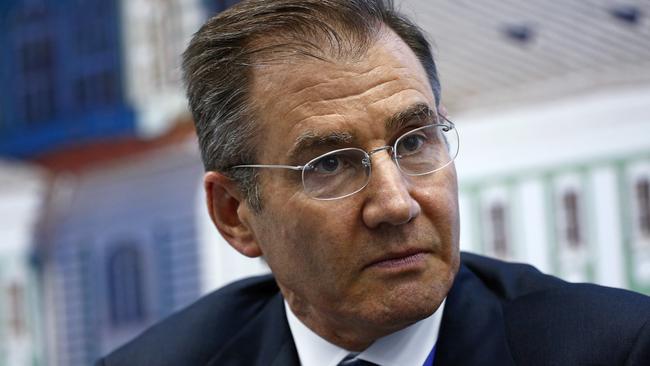Glencore: Ivan Glasenberg’s coal reversal a clever tactic
Glencore’s dramatic change in attitude will help it deliver wins on two major fronts.

On face value, Glencore’s extraordinary statement on coal represents a stunning reversal of its historical position.
But for the cynically minded, this is less about Ivan Glasenberg suddenly staging a late-in-life reinvention as an eco-warrior as it is about Glencore doing what it does best — finding a way to maximise the value of the commodities it mines and trades.
Glencore’s change in attitude will help it deliver wins on two major fronts.
First, there’s the relief it will deliver the company in the face of growing and intense pressure from investors concerned about its environmental, social and corporate governance.
So-called ESG investors have become an increasingly powerful force in the market, and Glencore — with its male-dominated executive, its deep ties in countries with questionable regimes, and its long and up until now unabashed love affair with all things coal — has long lagged behind all its major rivals on that front.
The company has always carried something of a mixed reputation with its long history of pushing the boundaries of international trade (its founder Marc Rich spent 17 years on the run from US authorities for breaching trade sanctions with Iran), but the scrutiny of Glencore has grown more intense in the past year.
Last July it was hit with a subpoena from the US Department of Justice over alleged money laundering related to its business dealings in Nigeria, the Democratic Republic of Congo and Venezuela.
This new position on coal should help it win some relief from the reputational pressure that has been building.
Second, there’s the more tangible benefits that could flow to Glencore as a result of its new coal position.
The company has spent billions snapping up coal assets in Australia from companies like Rio Tinto that had decided they didn’t want to be involved in coal any more. Glencore was already the nation’s biggest coal producer, and as a result of those deals it has cornered what are arguably the best assets in the global coal industry.
Just three months ago, Glencore detailed its expectations that coal demand in Asia would more than double by 2040 and that the quality of Australian coal meant its market share would continue to grow.
Assuming those forecasts are accurate — and Glencore’s record in picking commodity markets is second to none — its commitment to capping its coal output would see markets tighten and prices rise markedly.
Glencore’s world-class collection of coal assets means it would be the best-placed company to expand production should any gap in supply and demand emerge. Its new green focus means it has now ruled out doing that, but it will instead just sit on its hands and profit handsomely should coal markets ever tip into undersupply.
This may be less of a Road to Damascus-style conversion into Switzerland’s answer to David Suzuki, but yet another example of Glencore finding a clever and profitable solution to problems.



